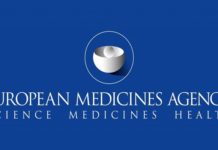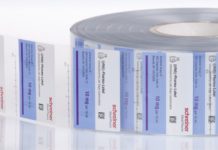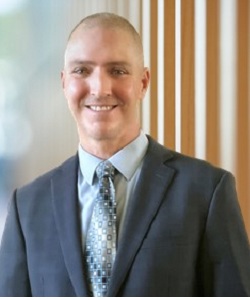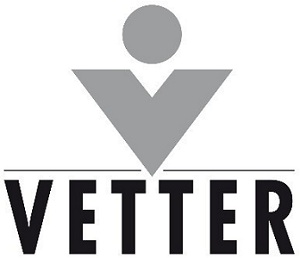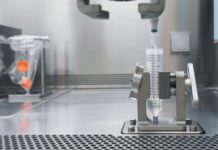The field of drug development can be risky and a costly investment – mistakes can mean the success or failure of a compound or even a company. And, while demands for specialized treatments and therapies continues to surge around the world, global health authorities are placing increasingly stringent demands on aseptic processes and technologies that the biopharma industry relies on to meet the needs of the world’s patients. Given the growing number of complex regulations and high costs of development, increasingly drug manufacturers are looking to expert contract development and manufacturing organizations (CDMOs) to help them prepare for their in-human trials or even commercial product launch. But, getting the right outsourcing partner is not a simple task. A good fit is essential and is precisely where the cooperation of a pharmaceutical consultant can be helpful. The services of a consultant with an extensive industry knowledge combined with a broad network of CDMO contacts can provide significant benefits to clients.

Consultants can offer critical information insight into the selection of the right CDMO
Consultants are highly skilled professionals with extensive backgrounds in the area of biochemistry, chemical engineering, regulatory review, quality control, etc.They can be invaluable in helping a client select the right service provider based upon their pharmaceutical needs and goals. The selection is usually subject to the client’s stage of development, budget, availability and, in particular, the CDMO’s level of quality and technical competence. For smaller clients that often lack the internal expertise or infrastructure, selection support is especially helpful. Flexibility is also a key consideration in the selection of a CDMO, especially when timeline milestones must be strictly adhered to.
Consultants can be helpful to larger companies as well. For example, providing knowledge and expertise to a client that has recently acquired a smaller client but now lacks the internal capacity or skills to do specialized operations for the compound(s) they acquired, thus requiring the services of an expert.It is important to understand the customer’s needs and define their goals. This may include an outsourcing strategy and identify a CDMO that best suits the requirements.
Once the pros and the cons of each CDMO have been identified, the consultant can then help lay out the development path. Since the process often starts from the initial development of a drug substance on through to finish, it is necessary to evaluate whether a service provider has the necessary skill set that fits with the client’s needs. Often, consultants may have two different CDMO’s under consideration, but one may do something more seamlessly than the other, but not necessarily in an ideal manner. Therefore, they are often involved in audits at outsourcing partner to understand their quality systems and technical expertise and to review their internal operating systems. While consultants usually contact the service provider directly, it is equally important for the CDMO to stay in touch with the consultants.

Working with a CDMO –How Consultants Play a Key Role
Once key issues have been addressed, the consultant will help to assess resource requirements necessary to manage the CDMO as well as work on the budget, capacity and timelines. For clients who have never worked with a service provider, it is important to understand the optimal relationship and outcome or other options that may become necessary. Previous experience plays a critical role in recommending a partner organization. As with most business relationships, there must be a collaborative effort between the client, the CDMO and the consultant if a successful outcome is to be realized. That means the relationship must be particularly close and flexible for the sake of the client.Having an individual at the CDMO as a single point of contact is critical.For the outsourcing partner it is important to provide the consultant and the client with the information they need such as company history and experience, process costs and timelines, technical capability as well as regulatory and quality issues. There must be productive interaction between all involved parties.
Most often, a three-way CDA is arranged that may require the consultant simplifying the processes to help their client understand the service portfolio and processes of the CDMO. Regular communication and documentation of meetings and what the action items are is essential. For the CDMO it is often easier to work directly with a consultant because consultants already have a great deal of the know-how that clients may lack. The consultant therefore acts as an extended arm of the client. Similarly, the outsourcing partner should also be viewed as an extended arm of the customer if goals are to be achieved. Helping to manage complex global manufacturing strategy and plan requirements with a CDMO is critical to the success of the customer’s project.
Through their work, consultants are in a unique position of dealing with a variety of companies, and in a variety of projects. This affords them the opportunity to stay abreast of regulatory and quality requirements, emerging trends in technology and other key issues which may affect their clients. They must remain current on the technology, regulatory and quality side of business.
Summary
For the client, consultant and CDMO alike, the ultimate success from a technical point of view is, of course, product approval. Given the high risk of drug development, however, such outcomes are quite limited. Thus, unexperienced clients not utilizing the services of a consultant may well be taking a risk.

Whether a client decides to utilize the services of a consultant across the entire product life cycle is dependent upon the compound being developed. Most often, however, it is best to engage a consultant in early preclinical before any filing or regulatory applications have been submitted. In this way, the consultant can help set the landscape of what needs to be achieved and help the client understand the development path into a GMP manufacturing environment.



